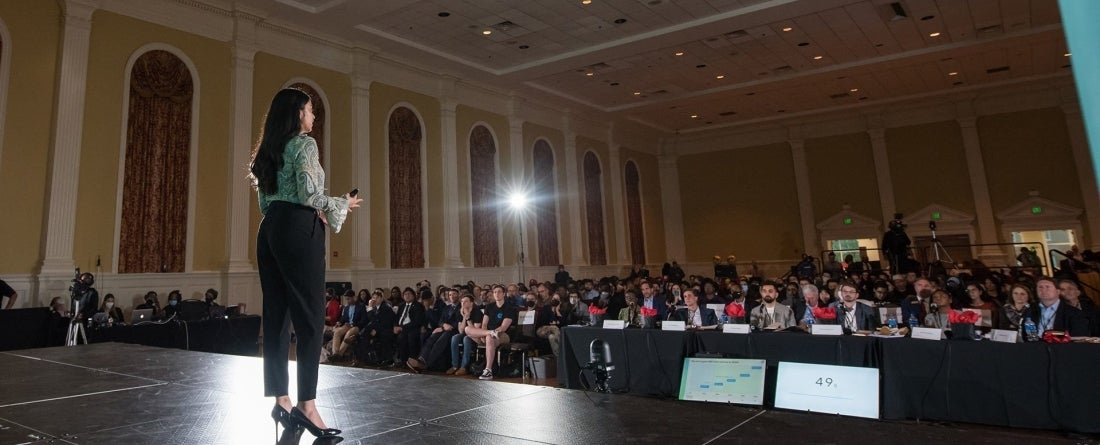
Photo courtesy of the Robert H. Smith School of Business
Maryland Earns Top 10 Nod From The Princeton Review, Entrepreneur Magazine for Eighth Straight Year
Via Maryland Today / By Annie Krakower
The University of Maryland’s longstanding commitment to instill innovation in Terps helped place it among the nation’s top schools for entrepreneurship education in rankings released today by The Princeton Review and Entrepreneur magazine.
In the 2023 edition of the annual list, UMD’s undergraduate programs ranked No. 7 across all institutions, climbing three spots from No. 10 last year; it stands at No. 4 among public universities. This marks Maryland’s eighth straight year in the top 10 and 11th straight year in the top 25. The university also placed No. 18 for graduate entrepreneurship education, up from No. 24.
Additionally, in the outlets’ new regional rankings, which debuted last year, UMD earned the top spot in the mid-Atlantic for both its undergraduate and graduate programs.
“Students aren’t just reading about entrepreneurship or watching a video. They’re actually experiencing it in unique and unexpected ways all around campus,” said Dean Chang, UMD’s interim chief innovation officer. “Then once they're intrigued, we’re providing on-ramps that allow them to easily explore more in-depth experiences tailored to their interests.”
[UMD Advances in U.S. News’ Ranking of Top Global Universities]
UMD’s consistent high marks are the result of contributions from across campus, he said, with several units working to achieve the goal of developing creative and innovative mindsets in all students. Collaborators range from the Academy for Innovation and Entrepreneurship in the Provost's Office to the Dingman Center for Entrepreneurship in the Robert H. Smith School of Business to the Maryland Technology Enterprise Institute (Mtech) in the A. James Clark School of Engineering to the Do Good Institute in the School of Public Policy—and beyond.
The diversity of programs means innovation and entrepreneurship take many forms on campus, Chang said. Those include classes encouraging brainstorming, student organizations working on startup ventures and competitions inviting Terps to help solve grand challenges, like the Pitch Dingman Competition and Do Good Challenge (both of which were won this past year by Vitalize, a clinician-centered mental health app).
“On stage, we see a diverse group of students who are using a lot of different parts of the entrepreneurial ecosystem at UMD to achieve the success and the impact that they’re seeking,” Sara Yousefnejad Gallagher, associate director of the Do Good Institute, said of competitions like the Do Good Challenge. Those resources might be mini-grants, coaching or other networking opportunities.
Such factors come into play as The Princeton Review surveys hundreds of schools for its annual rankings, analyzing criteria such as mentorship opportunities, academic offerings, the percentage of faculty and students involved in entrepreneurship-related courses and companies started by alums.
On that measure, Terps started 461 companies over the last five years, receiving $128.7 million in funding. Those numbers also helped the university rank No. 33 in the undergraduate category of the recent 2022 PitchBook Rankings, which rate schools producing the most entrepreneurs who have founded venture capital-backed companies.
On campus, 5,959 students took at least one undergraduate entrepreneurship course during the last academic year, and 595 were enrolled in an entrepreneurship-focused minor, major or concentration. Beyond that, Chang said, nearly half of all undergrads take at least one class each year that teaches innovative tools and mindsets, like creativity, problem solving and design thinking.
That array of campuswide, department-level, college-level and student-club resources, as well as outside-the-classroom opportunities, he said, “fit together like a puzzle to broaden the entrepreneurship experience.”



